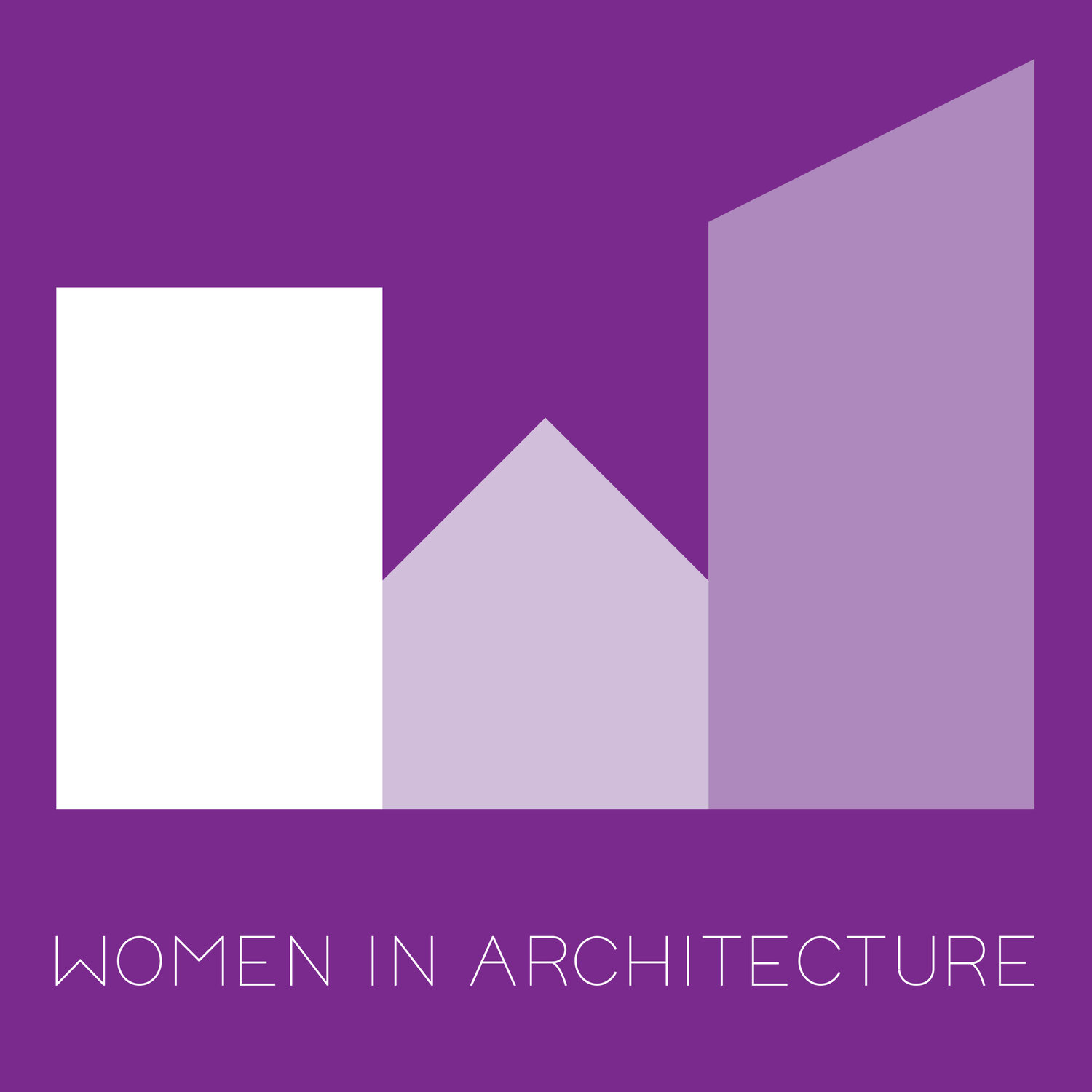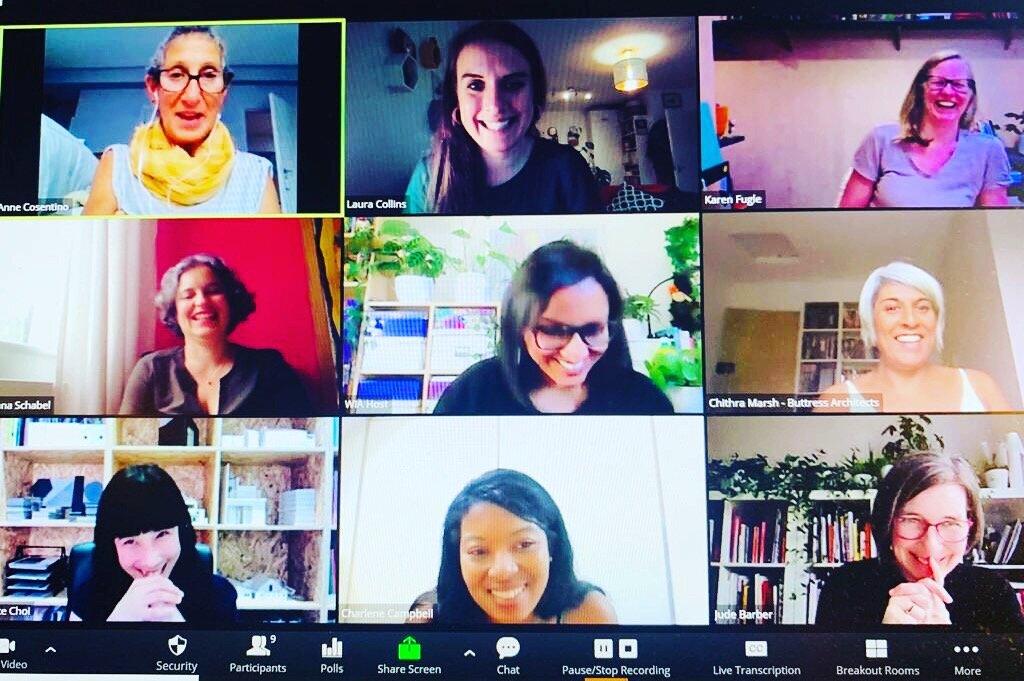Event Report: Do we really care about women in architecture?
The Future of Women in Architecture survey was launched by WIA UK in February 2021 to uncover the common challenges faced by women in the profession and the impact of the Covid-19 pandemic.
The Big Debate series is an exploration of these common challenges identified from the survey and our aim is to bring together viewpoints from various perspectives and voices within the community.
As part of the London Festival of Architecture 2021, which theme was 'Care', it felt fitting for Women in Architecture to organise an online event and forum to discuss and debate the challenges faced by women and their role in practice during the pandemic, and how we can promote positive change for individual and collective resilience and work-life balance in the aftermath, now and in the future.
The session was introduced by Tanisha Raffiudin - WIA Committee Member and Founder of Concept Culture, who provided an overview of the survey findings, which unsurprisingly highlight a growing desire for a better work life balance for all, with more care and due attention and appreciation of staff wellbeing and social parity.
The debate was moderated by Grace Choi - Director, Grace Choi Architecture, and speaker participants included Jude Barber - Architect-Director, Collective Architecture, Julia Cabanas - Architectural Assistant, Arup Architecture, Charlene Campbell -Director + Architect, Green Tea Architects and Chithra Marsh - Associate Director, Buttress Architects.
Grace Choi kicked off the session by outlining some key themes of pandemic conversations, including balancing life commitments on top of work responsibilities, as well as the pros and cons of virtual working and how we can and should pave the way for a brighter, more inclusive future workplace culture embedded within the profession.
Jude Barber provided a very relatable commentary on her personal and professional highs and lows of the workplace and life in practice during the last year, and how parity is key for positive change ahead. Jude also reinforced the onus on individual and collective responsibility: “as the feminists of the 1970s said…the personal is political…if we take care of women, we take care of ourselves”.
Julia Cabanas highlighted the significance of female role models and the influence of others in leading by example to provide an inclusive culture within practice and across the wider construction industry: "We need to re-write history and recognise the women that have made a contribution to the field, so that architectural assistants like myself are encouraged to stay in the practice." Julia’s candid account of her own experiences to date stimulated debate within the call on the importance of mentors and inclusive engagement between staff at all levels of an organisation.
Charlene Campbell recounted her personal take on the challenges of adopting a flexible work arrangement and running a practice on a virtual level, with the pressure of achieving balance with family life and caring for a young child. She praised the “something kind of beautiful” silver linings of the pandemic scenario and commented on how she was a forerunner for the company maternity policy and flexible working in relation to childcare, within the context of a small and youthful office team. Charlene promoted the positive take-ways from the pandemic experience and emphasised the importance of the opportunity for honest engagement and accessibility to supportive workplace conversations.
Chithra Marsh described the challenges of promoting and addressing cultural diversity and embracing everyone's story as part of effective management of a company's people first culture. From a management perspective, Chithra commented that "the next stage (coming out of the pandemic) will be even more complex to manage. My advice is to have a dedicated team or person who can take on the pastoral role and be in charge of staff and can look at mental health and wellbeing."
As part of the Q&A dialogue it was recognised that there needs to be an understanding that this pandemic experience has been a learning curve for everyone in virtual working, but this period has also highlighted the re-emergence of traditional patriarchal roles and the significance that a work culture can have, positive or negative on an individual (and their family’s) wellbeing. Trust has been a huge part of this, and everyone has had to work collectively to ascertain what support systems need to be in place at every level of an organisation, to offer a fully inclusive culture where everyone can thrive.
Kate Macintosh commented that part of the ongoing challenge is that despite progress, "it is assumed that the caring role is to be predominantly the responsibly of women. We will never achieve full equity." On a holistic level, Kate highlighted that "Greater diversity is not just for us, it's good for the profession and the clients."
The centre point of discussions focused on the challenges faced during the last year and how it has brought ongoing issues of lack of diversity, unconscious bias, workplace divisions and hierarchy to the forefront of the social and professional agenda. Representation of women in practice continues to be a societal challenge. In order for businesses to better support women of all levels, practices need to engage, listen and take heed of the positives gained from increased flexible working arrangements, allowing levelling of the playing field for many.
The resounding importance of making time to care was a key theme and the breakout room discussions included the significance of diverse recruitment; opportunities for self-development and growth; promoting wellbeing and flexible working policies, supported by an inclusive workplace culture and behaviours.
We would like to thank all the speakers and contributors to the session and we hope that you will join us for our next event.
Keep an eye on our website and social media channels for the Future of Women in Architecture survey results – coming soon!
Written by Laura Collins

